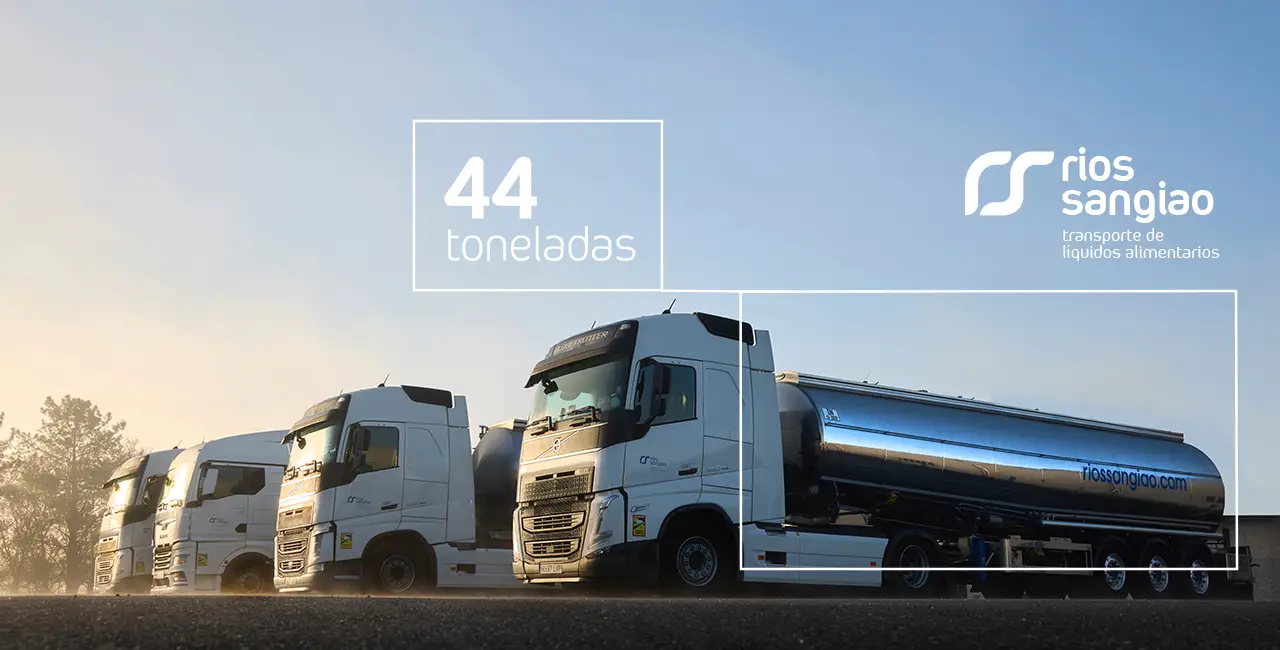
From 23 January 2026, Rios Sangiao will begin providing food liquid transport services with loads of up to 44 tonnes.
According to the publication in the Official State Gazette (BOE) of Order PJC/780/2025, which amends the General Vehicle Regulations, general cargo trucks can increase their capacity to 44 tonnes in Spain as of 23 October.
In the case of tanker trucks, which is the case that affects us at Rios Sangiao, we will be able to operate with 44 tonnes from 23 January next year.
At present, our isothermal tankers cannot travel at full load, which means that on each journey there is a loss of efficiency due to unused space.
This change therefore represents an optimisation of resources and an improvement in our competitiveness, given that all our vehicles with isothermal tanks for transporting liquid foodstuffs are approved for loads of up to 44 tonnes, as referred to in the text. Next year, we will be able to make more effective use of the full capacity of our lorries, achieving greater efficiency.
It should be noted that although most European Union countries have already adopted this measure, there is still no complete harmonisation at European level with regard to regulations on weights and dimensions in road transport. Trucks carrying 44 tonnes of cargo will not be able to continue to operate cross-border for the time being, as no truck will be allowed to cross a border with a load exceeding 40 tonnes.
This last part affects us significantly because a large percentage of our liquid food transport operations are carried out on international routes throughout the European Union, mainly to the Netherlands and Holland, so we hope that the next step for the authorities in the not too distant future will be to harmonise regulations at European level European Union and the opening of borders to these more competitive, efficient and sustainable loads.
In conclusion, this change paves the way for us to improve efficiency in 2026 in an area in which we specialise, namely the transport of dairy products, cream and the daily collection of raw milk from farms to factories. As these are domestic routes, we will be able to take full advantage of the potential and load capacity of our isothermal tankers and achieve more competitive costs.



This has been the work of Sr. Concejo

